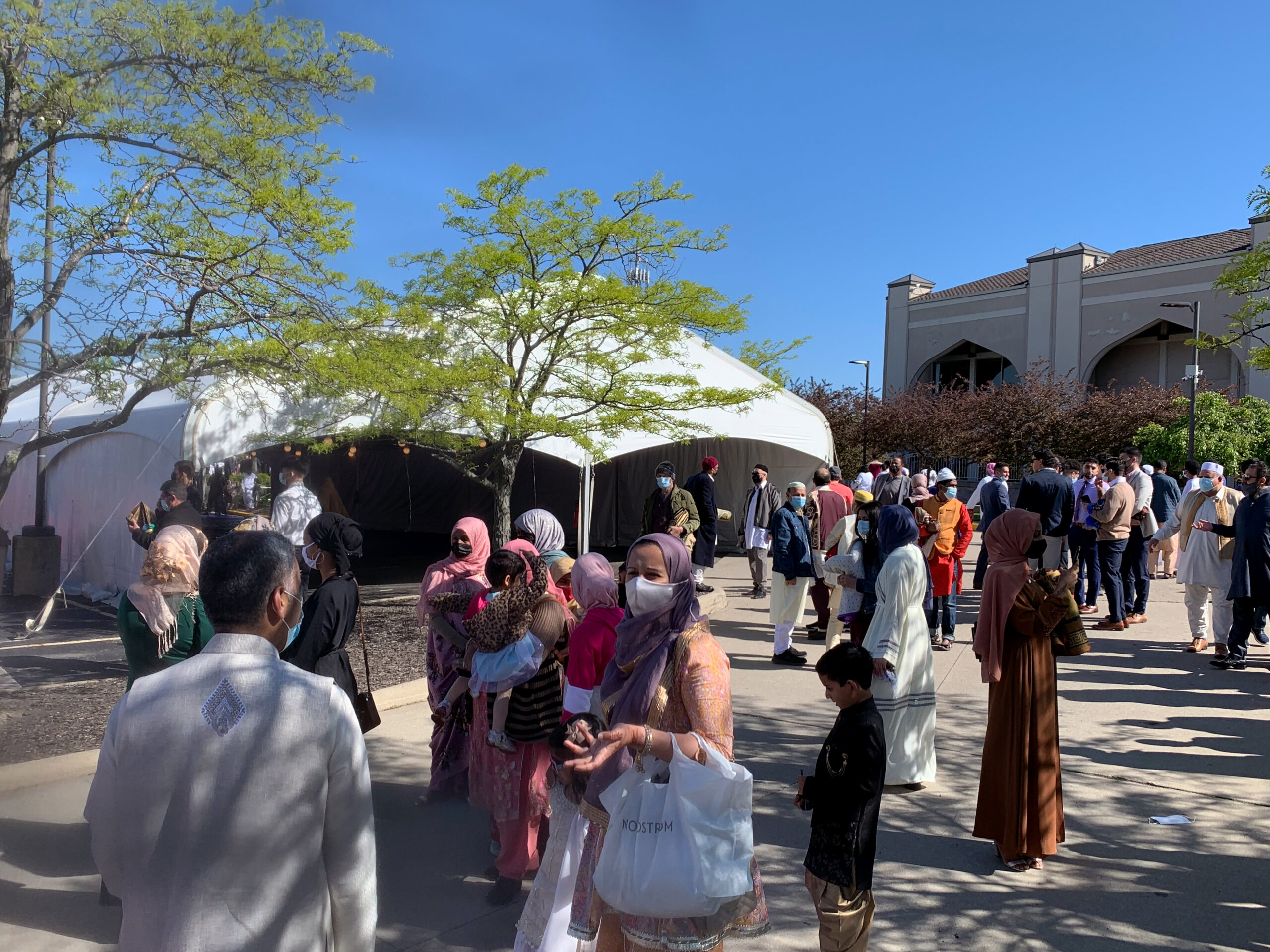Menu
Menu
ESSAY:
Pandemic Ramadan

Collage of sounds of pandemic Ramadan practices. Recordings by Anonymous, Garrett Christian Gaines, and Lauren Pond; production by D’Arcee Charington Neal and Lauren Pond.
Ramadan is the ninth month of the Islamic lunar calendar and a meaningful period for many Muslims. It is a month of daytime fasting and a time to recite and reflect on the Qur’an, which was reportedly first revealed on a Ramadan night. It is also a time of social gatherings, communal meals, and reunions. Mosques tend to be more crowded, and many Muslims make it a point to participate in special nighttime prayers. In the age of COVID-19, however, many communities had to reimagine their Ramadan traditions. And this reimagination varied from community to community.
In many cases, those attending prayers had to bring their own prayer rugs, wear masks, and maintain social distancing. Some communities held their prayers outdoors; others canceled services altogether. Zoom presentations often replaced in-person sermons and lessons; and some communities held online fundraisers for the first time. These online programs reached broad audiences yet were inaccessible to those with limited resources. For those accustomed to the social dimensions of Ramadan, the new conditions presented unique challenges, especially for those who lost loved ones or who could not visit sick relatives and friends.
In many cases, those attending prayers had to bring their own prayer rugs, wear masks, and maintain social distancing. Some communities held their prayers outdoors; others canceled services altogether. Zoom presentations often replaced in-person sermons and lessons; and some communities held online fundraisers for the first time. These online programs reached broad audiences yet were inaccessible to those with limited resources. For those accustomed to the social dimensions of Ramadan, the new conditions presented unique challenges, especially for those who lost loved ones or who could not visit sick relatives and friends.
The sounds of Ramadan typically include Qur’anic recitations, sermons, fundraisers, prayers, and invocations. Conducted virtually, these sounds included audio glitches, including pauses and distorted sounds; unexpected backgrounds noises; and unintentional moments of silence followed by, “You’re on mute.” And the many in-person conversations accompanying the breaking of fast and post-prayer gatherings were replaced by one-person-at-a-time virtual conversations and, in many cases, silence.
It is said that Ramadan is a month of spiritual training, a time when believers are tested. Many preachers highlighted the fact that Ramadan in the age of COVID-19 presented Muslims with an unprecedented test. But this test, the preachers asserted, had the potential to foster a deep sense of taqwa, or God consciousness. And fostering taqwa, the Qur’an (2:183) tells us, is precisely the reason fasting in Ramadan was prescribed in the first place.
– Mohammad Khalil
It is said that Ramadan is a month of spiritual training, a time when believers are tested. Many preachers highlighted the fact that Ramadan in the age of COVID-19 presented Muslims with an unprecedented test. But this test, the preachers asserted, had the potential to foster a deep sense of taqwa, or God consciousness. And fostering taqwa, the Qur’an (2:183) tells us, is precisely the reason fasting in Ramadan was prescribed in the first place.
– Mohammad Khalil

Eid prayers held outside of the Noor Islamic Cultural Center in Dublin, OH. Recording by Lauren Pond.
A Muslim imam attempts to discuss the Qur’an and its teachings online as his child makes noise in the background. Recording by Garrett Gaines.